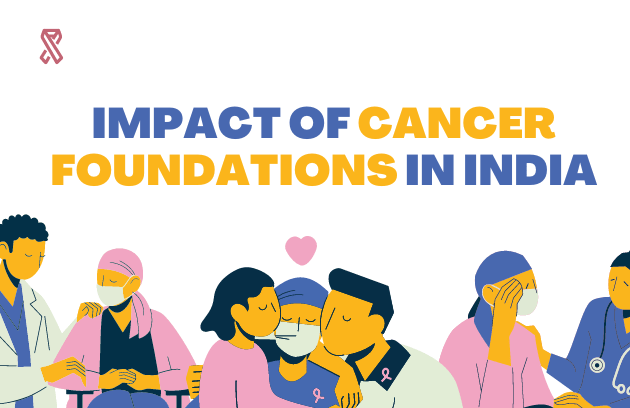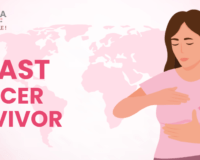Impact of Cancer Foundations in India: Empowering Patients and Families
Cancer non-profit foundations play a crucial role in providing support and assistance to people from socially and economically backward sections of society. Here are some ways in which these Cancer foundations help individuals facing cancer within these marginalized communities:
Financial Assistance:
Cancer non-profit foundations recognize that individuals from socially and economically backward sections of society often face significant financial challenges when it comes to accessing cancer treatment. These Cancer Help Foundations establish financial assistance programs that provide financial support to cover the costs associated with cancer treatment. The support may include funding for chemotherapy sessions, radiation therapy, surgeries, medications, hospital stays, and other related expenses. By offering financial aid, these Cancer Support Foundations ensure that individuals from marginalized communities can receive the necessary treatment without facing overwhelming financial burdens. This assistance is particularly vital as it helps alleviate the stress and financial strain on patients and their families, enabling them to focus on their recovery and well-being.
Access to Treatment:
Non-profit cancer foundations recognize the disparity in access to cancer treatment among socially and economically backward sections of society. To address this, they actively work towards improving access by establishing partnerships with healthcare institutions. These partnerships may involve negotiated agreements that provide discounted or free treatment options for patients who may otherwise be unable to afford them. Additionally, these Cancer Foundations may collaborate with hospitals and clinics to set up dedicated clinics or units that cater specifically to the needs of marginalized communities. This ensures that individuals from these communities have access to specialized cancer care without having to travel long distances or face financial barriers.
Furthermore, non-profit foundations may organize transportation services or provide travel assistance to help patients from remote or economically disadvantaged areas reach treatment centers. By facilitating transportation, they remove a significant barrier that could prevent individuals from seeking or completing their cancer treatment. These efforts aim to ensure that no one is denied access to life-saving treatment based on their socioeconomic background.
Awareness and Education:
Non-Profit Cancer Foundations understand the importance of raising awareness and providing education about cancer within socially and economically backward sections of society. They develop targeted awareness programs and educational initiatives that are culturally sensitive and tailored to the specific needs of these communities. These programs may include community outreach events, workshops, health camps, and informational materials in local languages.
Foundations engage with community leaders, local organizations, schools, and religious institutions to disseminate information about cancer prevention, risk factors, and the importance of early detection. They address cultural misconceptions, taboos, and stigmas surrounding cancer, helping to overcome barriers that may hinder individuals from seeking timely medical care.
In addition, these foundations conduct training sessions and workshops for healthcare providers within marginalized communities. By increasing the knowledge and capacity of local healthcare professionals, they ensure that individuals receive accurate information and quality care from trusted sources within their own communities.
Emotional and Psychological Support:
Non-Profit Cancer Foundations recognize that a cancer diagnosis can have profound emotional and psychological impacts on individuals and their families. They offer comprehensive emotional support services to help individuals cope with the challenges and emotional turmoil associated with cancer.
These Cancer Foundations provide access to trained counselors, psychologists, and support groups, either in person or through helplines and online platforms. They create safe spaces where individuals can share their experiences, fears, and concerns, and receive guidance from professionals and fellow survivors. Through counseling sessions, support groups, and peer-to-peer interactions, individuals from socially and economically backward sections receive the emotional support they need to navigate the complexities of their cancer journey.
Additionally, these Cancer foundations may organize workshops and programs that focus on building resilience, managing stress, and promoting positive coping strategies for patients and their families. By addressing the emotional and psychological aspects of cancer care, these Cancer foundations help improve the overall well-being and quality of life of individuals from marginalized communities.
Advocacy and Policy Changes
Non-profit cancer foundations actively advocate for policy changes that benefit individuals from socially and economically backward sections of society. They engage in dialogue with government bodies, policymakers, and healthcare institutions to raise awareness about the specific challenges faced by marginalized communities in accessing cancer care. These Cancer foundations present evidence-based research, statistics, and personal stories to advocate for reforms that improve healthcare equity and ensure that the needs of marginalized populations are addressed. By advocating for policy changes, such as increased funding for cancer treatment, improved healthcare infrastructure in underserved areas, and equitable distribution of healthcare resources, these Cancer foundations work towards creating a more inclusive and accessible healthcare system.
Outreach Programs:
Non-profit cancer foundations recognize that reaching out to socially and economically backward communities is crucial in raising awareness, promoting early cancer detection, and providing support. They organize outreach programs that specifically target these communities. These programs may include health camps, mobile screening units, and community-based initiatives that bring cancer awareness and cancer screening services directly to underserved areas. Through these initiatives, individuals from marginalized communities have the opportunity to access free or low-cost cancer screenings, consultations with healthcare professionals, and educational sessions. By taking healthcare services to the doorsteps of these communities, non-profit cancer foundations ensure that individuals who may face barriers to accessing traditional healthcare settings can receive timely cancer screenings, early detection, and appropriate referrals, thus improving their chances of successful treatment outcomes.
Conclusion:
Non-profit cancer foundations play a vital role in supporting individuals from socially and economically backward sections of society in their battle against cancer. Through financial assistance, improved access to treatment, awareness and education campaigns, emotional and psychological support, advocacy for policy changes, and targeted outreach programs, these cancer foundations strive to bridge the healthcare gap and provide equal opportunities for cancer prevention, early detection, and treatment. Their multifaceted efforts contribute to reducing healthcare disparities, improving outcomes, and enhancing the overall well-being of individuals from marginalized communities who are facing cancer.






